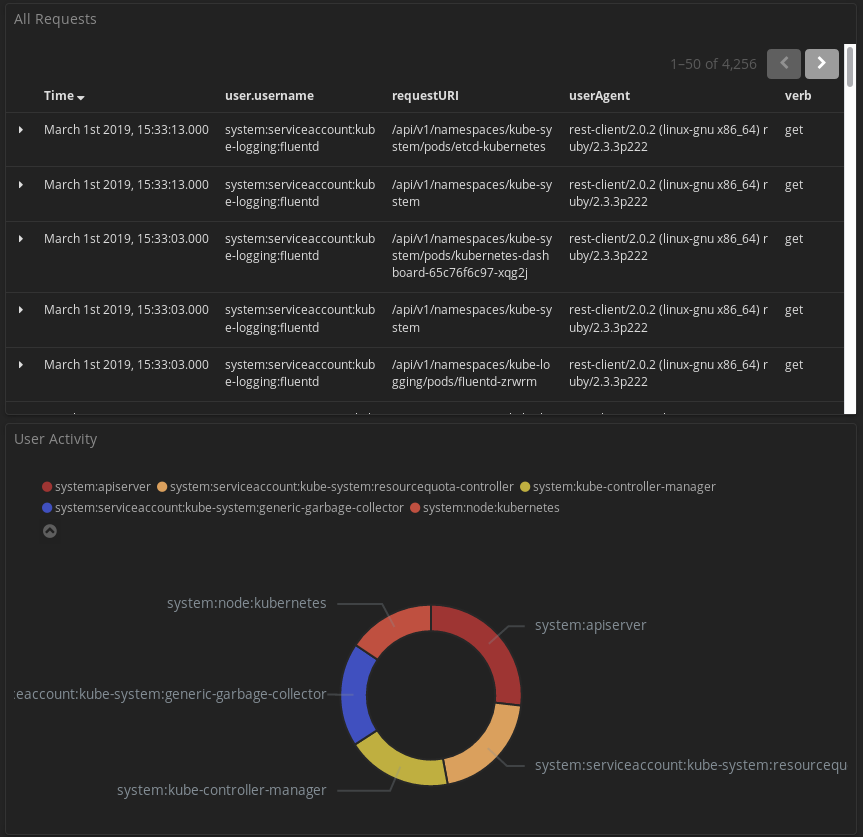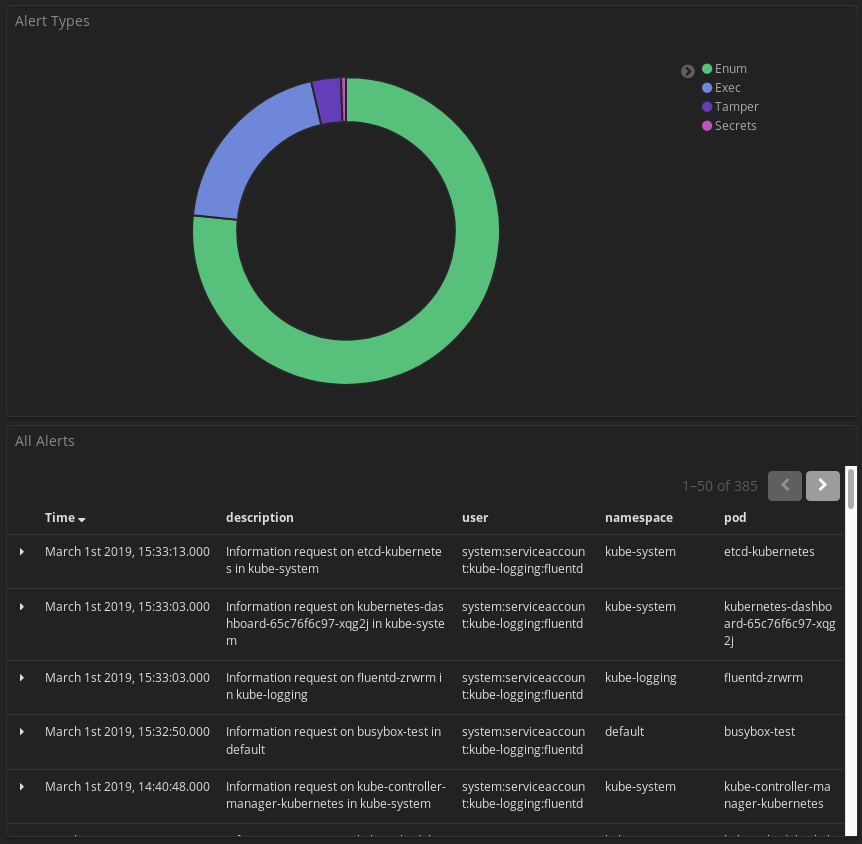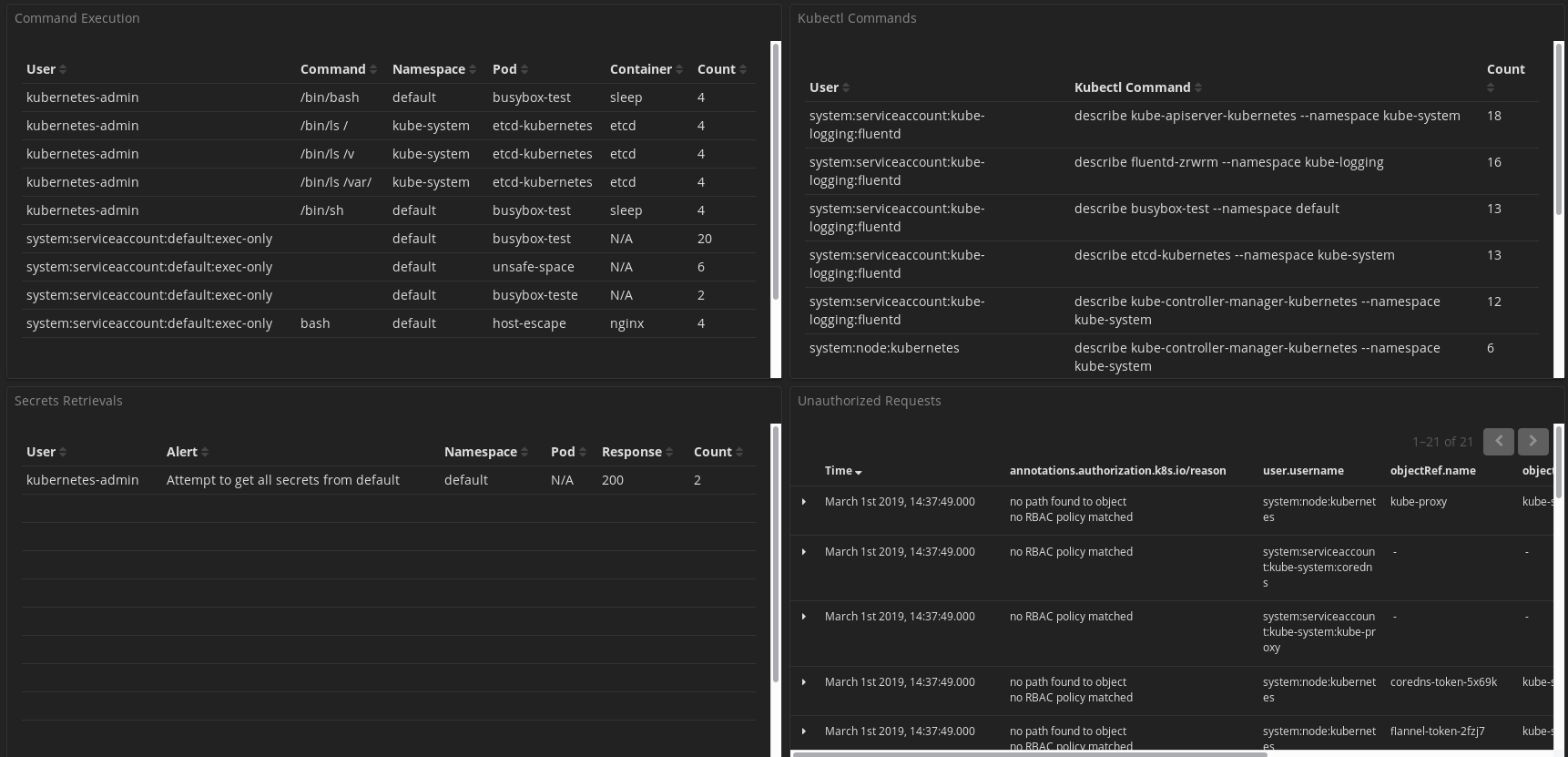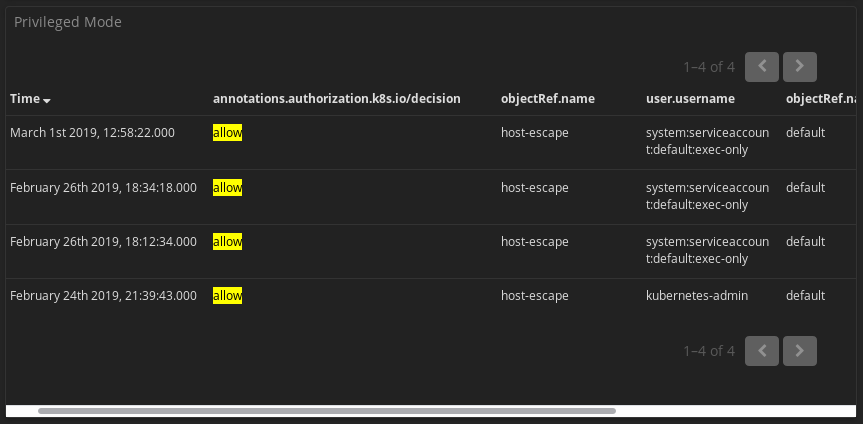Kubernetes Security Dashboard
This guide assists in configuring a logging architecture for Kubernetes, meant to store and parse audit logs. After setting up the logging architecture, run K8sCop for static or streaming analysis, and import the security dashboard in Kibana to obtain full visibility over Kubernetes cluster activity.
TL;DR
- Make the
kube-apiserverstore audit logs - Set up Elasticsearch and Kibana outside or inside Kubernetes
- Deploy the Fluent daemon to push logs to Elasticsearch
- Run K8sCop for static or streaming analysis of logs and labelling of events
- Import and view the Security Dashboard in Kibana
Big Picture
Installation
kube-apiserver arguments
The kube-apiserver has the possiblity to keep and store audit logs. By adding the following arguments to the /etc/kubernetes/manifests/kube-apiserver.yaml file:
containers:
- command:
- kube-apiserver
[arguments]
- --audit-policy-file=/etc/kubernetes/policies/adv-audit.yaml
- --audit-log-path=/var/log/kubernetes/kube-apiserver-audit.log
- --audit-log-format=json
[arguments]
volumeMounts:
[options]
- mountPath: /etc/kubernetes/policies
name: policies
readOnly: true
- mountPath: /var/log/kubernetes
[options]
- hostPath:
path: /etc/kubernetes/policies
type: DirectoryOrCreate
name: policies
- hostPath:
path: /var/log/kubernetes
type: DirectoryOrCreate
name: var-log-kubernetesAn example configuration file can be found in configs/kubernetes/kube-apiserver.yaml. Create the policies directory in /etc/kubernetes and copy configs/kubernetes/adv-audit.yaml to the newly created directory.
Setting up Elasticsearch and Kibana
This very nice and detailed guide on DigitalOcean.
Deploying fluent
Preparation
Create the mount directory for the fluent configuration:
# mkdir -p /var/share/volumes/fluent/etcAdd the files from the configs/fluent folder:
# cp entrypoint.sh Gemfile /var/share/volumes/fluent/.
# cp fluent.conf /var/share/volumes/fluent/etc/.Change the environment variables to connect to the installed elasticsearch installation:
- name: fluentd
image: fluent/fluentd-kubernetes-daemonset:v1.1-debian-elasticsearch
env:
- name: FLUENT_ELASTICSEARCH_HOST
value: "192.168.178.65"
- name: FLUENT_ELASTICSEARCH_PORT
value: "9200"
- name: FLUENT_ELASTICSEARCH_SCHEME
value: "http"
- name: FLUENT_UID
value: "0"
- name: FLUENT_ELASTICSEARCH_USER # even if not used they are necessary
value: "foo"
- name: FLUENT_ELASTICSEARCH_PASSWORD # even if not used they are necessary
value: "bar"
resources:Deployment
Apply the yaml configuration file:
$ kubectl apply -f fluentd-setup.ymlThere should be a kube-logging namespace, containing a volume (claim), a fluent pod and service account.
Debugging
To check the progress or to debug error messages, run the following command:
$ kubectl --namespace kube-logging logs fluent-[identifier] init-fluentd -fThis will stream the init containers' stdout/stderr while installing the required gems.
Omit init-fluentd to stream the logs of the actual container.
K8sCop
K8sCop specifics are described here.
Security Dashboard
Preview
An overview of all requests made inside Kubernetes and a pie chart of user activity, computer by requests per user.
A pie chart of the different types of alerts and an overview of the latest alerts made by K8sCop.
An overview of shell commands executed and kubectl interaction, with a list of attempts at secrets retrieval and requests that have been unauthorised.
An overview of privileged pod spawning.
Importing the Dashboard
- Navigate to the management interface of Kibana
- Go into Saved Objects
- Import the json objects file




